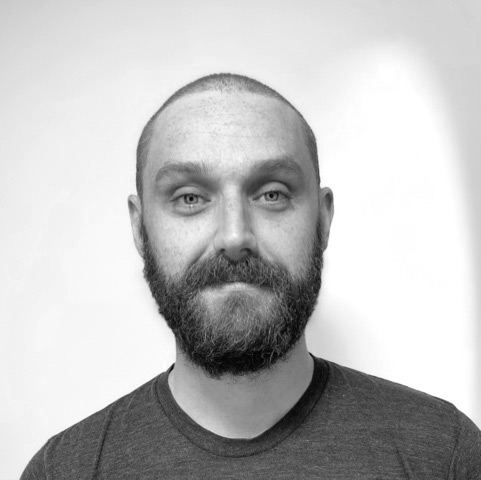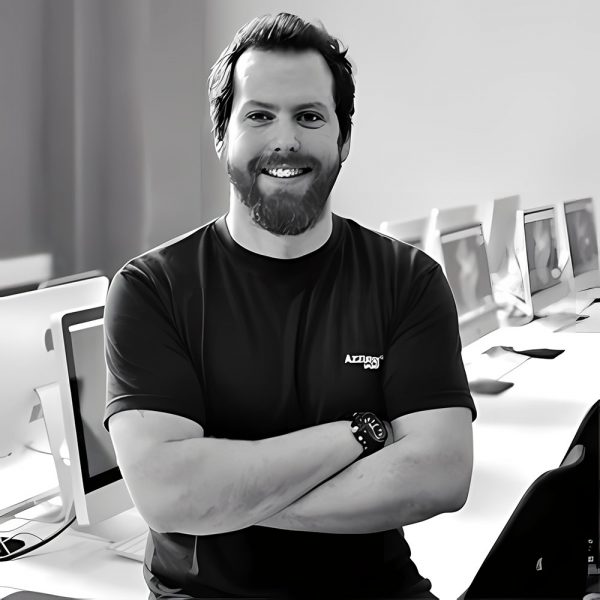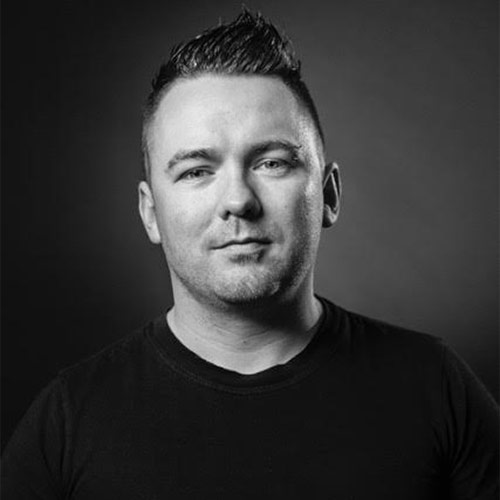BA (Hons) Degree in Audio and Music Technology

Faculty: Audio
Duration: 3 Years Full Time
Delivery: Classroom
Level: QQI Level 8
Start Date: 22nd September 2025
Course Director: Eoin Smith
Fees: Please Refer to ‘Fees’ Section Below
Certification: BA (Hons.) Degree
COURSE CONTENT
Aimed at musicians, DJs, computer music hobbyists, and general lovers of music, this programme will equip you with the skills required to succeed as a modern-day audio professional. It is currently essential to be skilled in an array of disciplines and areas to become successful in the audio industry. These areas range from an understanding of recording studios, live venues, TV and radio, post-production, to the nuances of live performance. Please see below for further information on the modules you will cover in this programme:
MODULES
Stage 1
This module covers basic principles of modern music technology. You will explore drum programming, samplers and VSTs. You will also learn how to set up the hardware and software of a music production suite and learn to record, edit and mix using computer based programmes.
You will be trained in the use of industry standard DAW software (Pro Tools and Logic Pro X). The curriculum and assessment is based on the official vendor programmes.
You will be introduced to the operating principles of modern recording studios and the issues in operating a recording system from microphone choice and placing techniques to basic editing and mixing techniques for final mix down.
You will develop your understanding of musical theory, analyse musical structure and form (from Rock and Pop music to Classical and Jazz) and Aural Training skills. You will develop your notational skills using Sibelius notation software to convey musical ideas to musicians with musical vocabulary.
You will get a broad understanding of the music industry, its various roles and structures within the industry; the commercial, the regulatory environment, and the wider music culture.
You will be introduced to the theory, techniques and practices involved in implementing appropriate sound reinforcement for a live performance event.
You will be introduced to the principles of sound, estimating changes in sound frequency, sound level, band limitations and irregularities, distortion, noise, etc.
Stage 2
You will gain further knowledge in this area, conducting research into virtual instruments and doing an in-class group presentation.
You will develop your recording skills to a professional industry standard including pre and post-production elements, recording large acoustic ensembles, You will manage the studio environment with an orchestra or large ensemble, and develop your communication skills required to liaise with clients.
During this creative module, you will be required to develop sounds for a range of environments (machine, underwater, space) and how to use processing techniques to enhance and deliver your soundscapes and ideas.
You will develop your understanding of musical theory, analyse musical structure and form (from Rock and Pop music to Classical and Jazz) and Aural Training skills. You will develop your notational skills using Sibelius notation software to convey musical ideas to musicians with musical vocabulary.
You will acquire the foundational skills required to design, configure and calibrate a P.A. System to professional standards. Utilising prediction and analysis software, you will develop system engineering skills and plan and realise a live event.
During this module you will be introduced to the technical aspects of live performance. You will work with stage set-ups and learn about the connectivity between music technology software and performance hardware.
You will work in the role of a modern music producer utilising technical and interpersonal skills to facilitate a project from pre-production to completion.
Stage 3
You will work closely with a tutor to complete a large body of work. This project is led by you and may focus on any area worthy of academic research. You will further develop your skills in critical thinking and put your creativity into practice.
You will develop your recording skills to a professional industry standard including pre and post-production elements, recording large acoustic ensembles, You will manage the studio environment with an orchestra or large ensemble, and develop your communication skills required to liaise with clients.
You will gain practical and theoretical knowledge in the design and setup of a recording studio environment. You will learn how to capture and analyse acoustic information for a given environment and develop acoustic solutions to issues identified.
You will learn self-marketing skills and the legal and ethical issues pertaining to the world of music/audio, all of which are required to set up your own business and trade as freelance/sole trader professional.
You will be equipped with the theory and practical knowledge to provide audio content for games and interact with the industry middleware and audio engines. This will be developed incrementally to help the learner in the creation of dynamic sound environments that interact directly with the game software.
You will gain further knowledge on how live performance systems can be programmed and performed and the skills needed to plan and realise a live performance.
Having already developed considerable recording experience, you will focus your skills into the area of post-production. You will learn about the standards and practices to deliver products for film and TV to industry specifications.
Got a question?
TUTORS

Eoin Smith
Course Director
Course Director: Eoin Smith
Eoin started using computer music tools at a very young age and quickly caught the bug for music technology. After finishing his PhD in Maynooth University, Eoin went on to work in a few different teaching roles across Dublin. An avid Ableton Live user, Eoin also has experience working in Live Sound, Post Production, and at Dublin Vinyl, a record manufacturing plant, before joining the team here at Pulse College.

Greg Clooney
Tutor
Greg Clooney
Greg is a freelance Mix/Mastering Engineer, Post Production Engineer, Sound Designer and Educator. Greg has worked with a wide range of music clients including U2, Herbie Hancock and Dionne Warwick, as well as Post Production projects for RTÉ, TG4 and Channel 4 and a number of live TV sound roles including The Late Late Show, Primetime and The Saturday Night Show. Greg is an expert in Music Technology and is also an Avid certified Pro Tools Operator and Instructor for both Music and Post Production, Professional. Greg has a Masters(MPhil) in Music and Media Technologies from Trinity College.

Lee Edgeworth
Tutor
Lee Edgeworth
HOW TO APPLY
General Course Requirements
- A proven interest in audio and/or music technology, and to display some interest in related creative media arts
- Basic knowledge of computers (Mac/PC, and audio software): helpful but not essential
This course is a direct application course and involves an interview. Applications are currently taken through the Application Form below. Upon receiving your application form our Admissions Team will contact you to schedule your course interview. Note: Applications from individuals with non-standard qualifications, relevant work or life experience will also be considered.
Further Progression
In line with national policy, graduates from the level 8 programme would be eligible to progress to postgraduate programmes at level 9.
Graduates may wish to further extend their industry-based professional qualifications as new technologies and developments emerge.
To include a minimum O6 or higher in Ordinary Leaving Certificate Mathematics and either Irish or English.Or:To achieve a minimum of 3 distinctions and the full award in a FETAC Level 5/6 or HETAC Level 7 in Music/Media.Or:a Minimum of 2 Grade C A Levels as well as 4 subjects from either A levels (Grades A-E) or GCSE (Grades A,B or C). Or NVQ Level 3 in Music/Media or similar.
All learners are required to be proficient in English. Where an applicant’s mother tongue is not English, they are required to provide proof of proficiency in the English language through satisfactory performance on an internationally recognised test.
The English language entry requirements for the programme are CEF B2+ or equivalent. Candidates with English below CEF B2- must first reach this minimum standard.
Note: Students who do not satisfy Pulse College’s English language requirements for direct entry will be required to take an English language preparatory course before commencing studies.
If you have any queries on the above please get in touch with our admissions team admissions@pulsecollege.com
Interview Process
This course requires an interview as part of your applications. Please see the FAQ’s below for commonly asked questions regarding the interview process.
The interviews are held in:
Windmill Lane Recording Studios,
20 Ringsend Road,
Dublin 4
Interviews can also be conducted online via Zoom. Please reach out to our Admissions team if you have any questions on this @ admissions@pulsecollege.com
The interview will be typically 20–30 minutes long.
If you could please bring:
– A copy of your C.V. that includes results of any music exams / tests you have completed to date. It should also include details of any groups / associations you have been a member of. It should also list your hobbies / interests
– If you have a portfolio of work, please bring that too; CD is the preferred format, and it should include no more than four pieces. These pieces should demonstrate your abilities as a musician, composer or producer (or all three!). Please note this is not a mandatory requirement
– A copy of your passport/drivers licence
– A copy of any previous education transcripts and certificates
No, there will be some questions about music. You won’t be asked to play an instrument. This takes place in a chatty, comfortable atmosphere. We will also ask you to discuss your influences in relation to producers, composers, etc.
The panel typically comprises 2-3 people.
Successful candidates have a strong, proven interest in this area. They are passionate about music and are prepared to work very hard towards their goals.
“The caliber of the teachers were first class in terms of instruction and information. I thoroughly enjoyed the experience and learned a lot!”
Google ReviewCheryl Cobern Browne
FEES
Study Mode: Full-Time
Location: Dublin
Irish/EU living in Ireland: EUR 8,950*
2% PFL Charge of €179 included in Total Fee Per Year
Flexible Payment Option
Deposit: €800 (payable upon acceptance onto the course, following interview)
Enrolment Fee: €3,500 (payable by September)
Instalments: 4 monthly payments of €1,162.50 (Oct – Jan)
Year 2 Course Fees: €8,950
Year 3 Course Fees: €8,950
Course fees are paid directly to the International Office of our partner college: Griffith College.
Study Mode: Full-Time
Location: Dublin